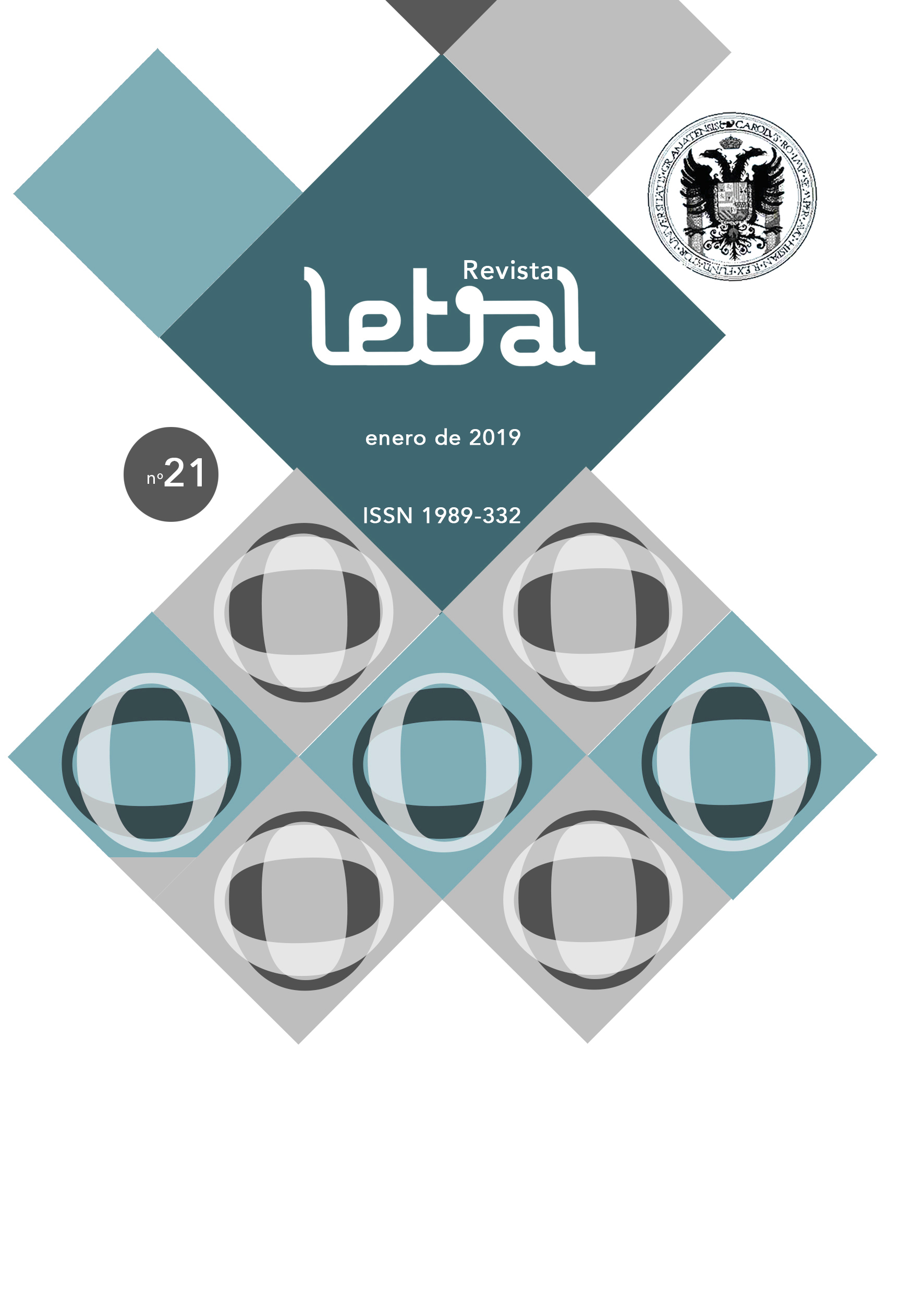Self-Deception and Social Interactions
DOI:
https://doi.org/10.30827/rl.v0i21.8608Keywords:
Self-deception, deflationary model, truth, deception, contradictory beliefs, social interactions.Abstract
In this paper we present the traditional (which we call canonical) model used to explain self-deception and show some of the problems it has to face. Then we present a different model known as the deflationary model or the non-intentional model and defend it is a better alternative to explain self-deception than the former. Finally, we present a problem the deflationary model has to face and that, when treated, leads to new considerations about the model and to see it under a new light. This problem, however, does not debilitate the model but makes it stronger in the end. We defend that the problem arises from the fact that the model has been thought on the light of perceptual evidence but not including social interactions. The inclusion of such interactions makes it necessary to modify slightly the model in order to accommodate them and the behavior of the self-deceived agents. In each of the sections of this paper we resort to literary examples that depict the essential characteristics of each case.
Downloads
References
Audi, Robert. "Self-Deception, Rationalization and Reasons for Acting". Perspectives on Self-Deception. Ed. Oksemberg-Rorty, Amélie; McLaughlin, Los Angeles, University of California Press, 1988, pp. 92-120. DOI: https://doi.org/10.1525/9780520908482-005
Bermúdez, José Luis. "Self-Deception, Intentions and Contradictory Beliefs". Analysis 60.4, 2000, pp. 309-19. DOI: https://doi.org/10.1093/analys/60.4.309
BonJour, L. Epistemology: Classic Problems and Contemporary Responses. Oxford, Rowman & Littlefield Publishers, 2010.
Buckwalter, Wesley, David Rose, and John Turri. "Belief through Thick and Thin". Noûs 49.4,2013, pp. 748-75. DOI: https://doi.org/10.1111/nous.12048
Byrne, A. Transparency and Self-Knowledge. Oxford, Oxford University Press, 2018. DOI: https://doi.org/10.1093/oso/9780198821618.001.0001
Davidson, Donald. Problems of Rationality. Oxford, Oxford University Press, 2004. DOI: https://doi.org/10.1093/0198237545.001.0001
Fernández, Jordi. "Self-Deception and Self-Knowledge". Philosophical Studies, 162.2, 2013, pp. 379-400. DOI: https://doi.org/10.1007/s11098-011-9771-9
Funkhouser, Eric, and David Barrett. "Robust, Unconscious Self-Deception: Strategic and Flexible". Philosophical Psychology, 29.5, 2016, pp. 1-15. DOI: https://doi.org/10.1080/09515089.2015.1134769
Greenwald, Anthony. "Self-Knowledge and Self-Deception: Further Consideration". The Mythomanias: The Nature of Deception and Self-Deception. Ed. Myslobodsky, Michael, New Jersey, Lawrence Erlbaum Associates Publishers, 1977, pp. 51-71.
Hahn, Ulrike, and Adam J. L. Harris. "What Does It Mean to Be Biased: Motivated Reasoning and Rationality". Psychology of Learning and Motivation. Ed. Ross, Brian, San Diego, Academic Press, 2014, Pp. 41-102. DOI: https://doi.org/10.1016/B978-0-12-800283-4.00002-2
Levy, N. Neuroethics: Challenges for the 21st Century. Cambridge, Cambridge University Press, 2007. DOI: https://doi.org/10.1017/CBO9780511811890
Mele, Alfred R. "Have I Unmasked Self-Deception or Am I Self-Deceived?". The Philosophy of Deception. Ed. Martin, Clancy W., Oxford, Oxford University Press, 2009, pp. 260-276. DOI: https://doi.org/10.1093/acprof:oso/9780195327939.003.0015
Mele, A.R. Self-Deception Unmasked, Princeton, Princeton University Press, 2001. DOI: https://doi.org/10.1515/9781400823970
Muñoz, Carlos A.; Patarroyo G., Carlos G. Culpa Sin Trasgresión: Un Análisis Filosófico De La Culpa Del Sobreviviente Bogotá, Universidad del Rosario, En prensa.
Oksemberg-Rorty, Amélie. "The Deceptive Self: Liars, Layers and Lairs". Perspectives on Self-Deception. Ed. Oksemberg-Rorty, Amélie; McLaughlin, Brian, Los Angeles, University of California Press, 1988. Pp. 11-28. DOI: https://doi.org/10.1525/9780520908482-002
Shakespeare, William. Timón de Atenas, Buenos Aires, Losada, 2004.
Singer, Isaac Bashevis. Cuentos. Barcelona, Lumen, 2018.
Stokke, A. Lying and Insincerity. Oxford, Oxford university Press, 2018. DOI: https://doi.org/10.1093/oso/9780198825968.001.0001
Strandberg, H. Self-Knowledge and Self-Deception, Palgrave Macmillan, 2015. DOI: https://doi.org/10.1057/9781137538222
Zweig, Stefan. Novela De Ajedrez. Barcelona, Acantilado, 2000.
Downloads
Published
How to Cite
Issue
Section
License
Revista Letral is an open access journal under a Creative Commons Atribución-NoComercial 4.0 license.
The works published in this journal may be reused, distributed and publicly presented for non-commercial purposes, provided that: cite the authorship and the original source of the publication (journal, publisher and URL of the work).
We strongly recommended you to share our published articles in social and scientific networks, institutional and public repositories, personal or institutional websites, blogs, Google Scholar, ORCID, ResearchID, ScopusID, etc.
The journal allow the author(s) to hold the copyright and to retain publishing rights without restrictions.
We are completely free, both for readers and authors.














